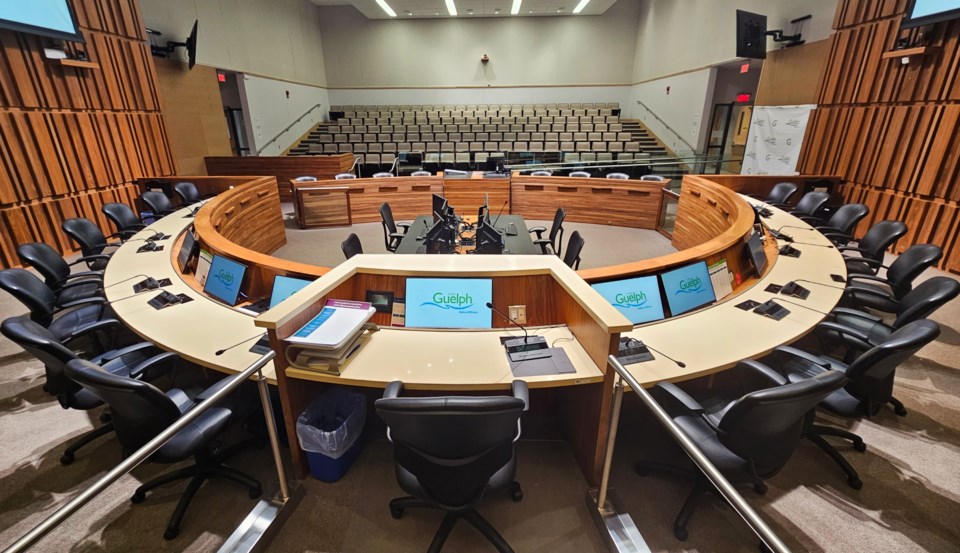Facing the prospect of a double-digit property tax increase next year, followed by additional hikes in the years after, city council has opted to set a special meeting to discuss ways to bring that number down.
A motion setting the meeting for Nov. 22 was unanimously approved on Tuesday afternoon, after council spent the better part of seven hours receiving the 2024 to 2027 budget presentation from staff and asking questions.
“We are going to need 13 heads to try to figure this out,” said Mayor Cam Guthrie at the onset of the presentation, referring to the 13 members of council. “I think that would very much help our community out.
“We have a big path in front of us here.”
The draft budget, which was released on Friday, includes residential property tax increases of 10.32 in 2024, 9.38 per cent in 2025, 8.67 per cent in 2026 and 6.67 per cent in 2027, though council will have a chance to make adjustments heading into each year.
“Many people find 10 per cent unpalatable,” said Coun. Cathy Downer.
“This is a tragedy of a budget,” added Coun. Dan Gibson.
The draft spending plan is broken out into three categories – things council can control such as city service levels (4.97 per cent increase), things council can’t control including the police and library budgets (1.98 per cent increase) and the provincial impact local levy brought on by changes to legislation (3.38 per cent).
“We all know it costs more money today to buy groceries and fill that tank,” CAO Scott Stewart said, noting inflationary pressures are a major factor in the city-controlled portion of the tax increase. “We’re not permitted to run a deficit and we’re not recommending we should.”
Coun. Rodrigo Goller proposed the Nov. 22 meeting after withdrawing a motion that, had it been approved, would have directed staff to cut $6 million from the budget in order to bring the tax increase down by two per cent.
“A lot of my constituents are on fixed incomes … their income is not increasing by $1,000 a year (to compensate for the draft tax increase on larger homes),” said Goller of his initial motion.
“I’m not asking for something that is unattainable,” he continued, noting he could come up with ideas to reduce his household budget by five per cent to help with affordability. “This is why I’m looking to city staff to help us.”
In response to that idea, some of his colleagues were quick to object to the thought of having staff make reductions when they’ve already brought forward its recommendations while trying to balance obligated services with community betterment.
“That’s our job,” Coun. Leanne Caron said of making further reductions. “It’s our budget now. It’s time to do our work. They’ve done their best work and it’s up to us now.”
“Those are political decisions,” added Downer. “It’s on us to step up to do the work.”
Those comments, among others, inspired Goller to withdraw his motion and instead call for the workshop date to be set.
In addressing Goller’s initial motion, Stewart suggested service levels would be a likely area to look at reductions, using the example of grass-cutting on city-owned properties.
“Are their sacred cows?” Stewart asked, referring to things council doesn’t want touched. “That would really help us if you give us that direction.”
That direction, however, wasn’t provided, as council shifted to the idea of holding a workshop to discuss potential areas for reduced spending, as well as the potential impacts of those reductions.




